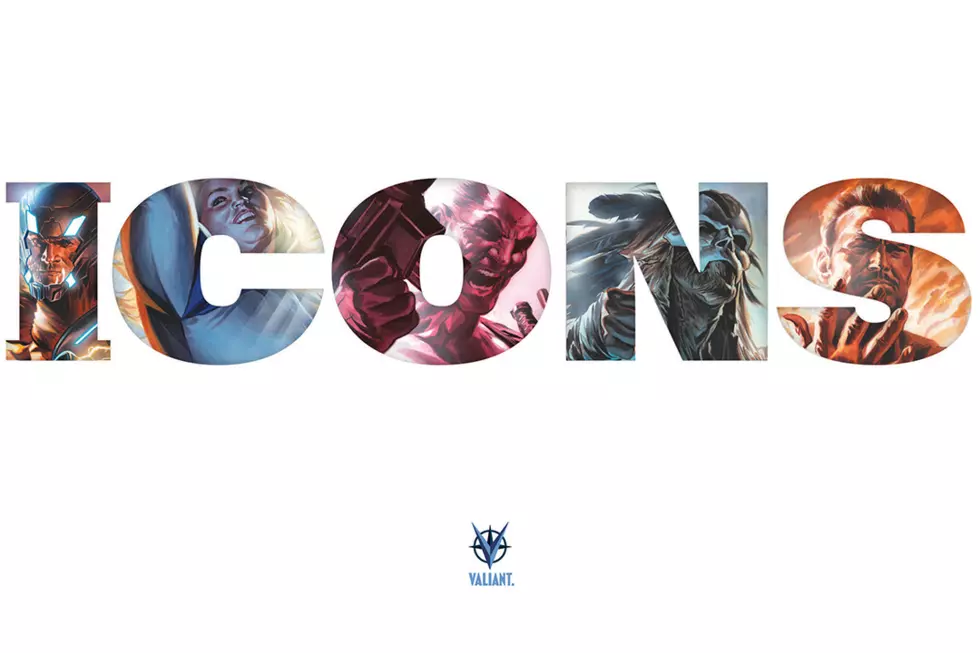![Matt Kindt’s ‘Revolver': Breezy, Melancholy and Good [Review]](http://townsquare.media/site/622/files/2010/07/revolverreviewmain.jpg?w=980&q=75)
Matt Kindt’s ‘Revolver': Breezy, Melancholy and Good [Review]
I think most people have a pretty active fantasy life. You know what I mean--where you daydream about being a thinly veiled version of James Bond or Superman or beating up your boss or being the president. A fantasy life is healthy, and thinking about living another life is a good way to work out frustrations or pass the time. It's also not real, which is probably a good thing.

Matt Kindt's "Revolver," an original graphic novel out of Vertigo, takes a character and turns what would be a fantasy in anyone else's mind into something akin to a nightmare. Sam goes to bed one night and wakes up in the middle of something like the apocalypse. Planes are falling out of the sky, disease is running rampant, and it looks a whole lot like the beginning of the end. After going to bed in this fresh new hell, he wakes up in the normal world. His job still sucks, his fiancee is still materialistic, and his boss is still a jerk. The next morning, back to chaos. And back and forth he goes, again and again, living out two lives, both of which are sad in completely different ways.Kindt's Vertigo debut is something that has all the ingredients for a rocking post-apocalyptic adventure tale, the kind of story you describe with phrases like "high octane" and "tour de force." A milksop finds his way into a tense situation and discovers he has what it takes to survive. Kindt, though, goes in another direction entirely. Rather than trafficking in the same old cliches you see in every post-apocalyptic tale, Kindt instead delivers a character-driven story that's a bit more realistic than you'd expect.

Sam never quite becomes the action hero you may have thought he'd turn into early in the story. The violence and terror of the chaotic world shakes him to the core, and while he finds things to enjoy in that world, he never really comes to enjoy it. His normal life degrades as his experiences begin to take a toll on him, causing him to seek help from a psychiatrist.
Sam stays realistic, and that's a boon for "Revolver." He's grounded to a very believable degree, and that keeps the story from spinning off into outright fantasy. Both worlds are approached with the same level of realism, which results in a somewhat melancholy, but gripping read.
Kindt's art is toned, rather than fully colored, which enhances the melancholy tone of "Revolver." Characters sometimes feel sketched out, and look a little rough around the edges overall. I hesitate to say that they feel unfinished, because that is both inaccurate and unfair, but there's something about them that makes their ordeal feel even rougher, whether in the ordered world or the chaotic one. It's easy to believe in their pain and their plight.

In contrast to the slightly rough art, Kindt sticks to a steady grid throughout the book, save for when story needs necessitate a break in the rigidity. It's a particularly effective technique, because the grid both keeps the story moving along quickly as it flip-flops between here and there, and when the grid goes away, you're looking at an emotional gutpunch.
"Revolver" is a good read. It went by quick as a breeze, and it's got just enough depth to provoke further thought. This is yet another quality comic from a guy who is quickly proving himself to be a force to be reckoned with, if he hasn't already (on "Super Spy," "3 Story: The Secret History of the Giant Man"). A Tight plot, believable characterization, and well-executed art means that Matt Kindt's won again.
More From ComicsAlliance
![Aric Is Having A Bad Day In ‘X-O Manowar’ #1 [Preview]](http://townsquare.media/site/622/files/2017/03/XO00.jpg?w=980&q=75)
![Journey Through The Shadows Of Deadside With A First Look At ‘Rapture’ [Previews]](http://townsquare.media/site/622/files/2017/03/Rapture00.jpg?w=980&q=75)


![Aric Fights His Way To The Top In ‘X-O Manowar’ #2 [Preview]](http://townsquare.media/site/622/files/2017/01/XO00.jpg?w=980&q=75)
![Take A Tour Of Britain’s Greatest Super-Prison In ‘Ninjak’ #23 [Preview]](http://townsquare.media/site/622/files/2017/01/Ninjak00.jpg?w=980&q=75)

![Matt Kindt And Tomas Giorello Relaunch ‘X-O Manowar’ With ‘Soldier’ In 2017 [Exclusive Art]](http://townsquare.media/site/622/files/2016/12/XO00.jpg?w=980&q=75)
![Ninjak Embarks On A Silent Interlude In ‘Ninjak’ #22 [Preview]](http://townsquare.media/site/622/files/2016/12/Ninjak00.jpg?w=980&q=75)
